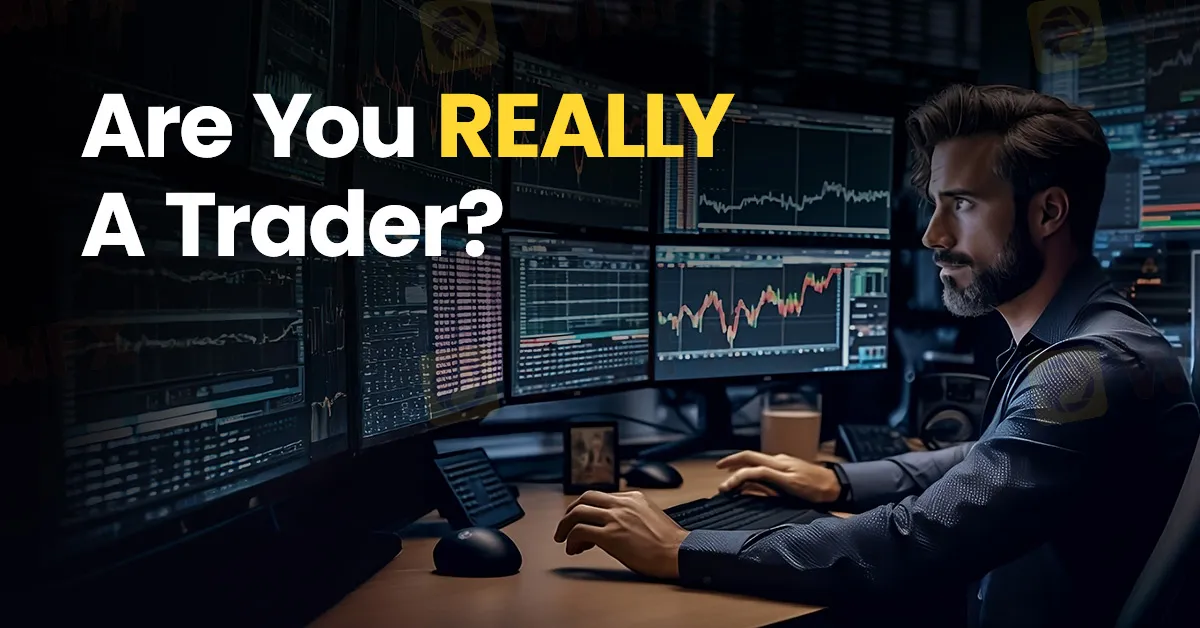简体中文
繁體中文
English
Pусский
日本語
ภาษาไทย
Tiếng Việt
Bahasa Indonesia
Español
हिन्दी
Filippiiniläinen
Français
Deutsch
Português
Türkçe
한국어
العربية
Are You REALLY a Trader?
Abstract:In the fast-paced world of forex and cryptocurrency trading, the allure of quick profits and the thrill of the market can often blur the lines between serious traders and those chasing an adrenaline rush. But, are you REALLY a trader?

In the fast-paced world of forex and cryptocurrency trading, the allure of quick profits and the thrill of the market can often blur the lines between serious traders and those chasing an adrenaline rush. But, are you REALLY a trader? This question delves into the core of your motivations and your approach to trading. Are you in it for the excitement, or are you treating it as a serious business venture with a well-thought-out risk management plan?

Many individuals are drawn to trading because of the adrenaline rush it offers. The market's volatility provides a constant stream of stimuli that can become addictive. The rapid price movements, the possibility of significant gains, and the fear of missing out (FOMO) can all contribute to a sense of excitement that is hard to resist.
However, this approach often leads to decisions driven by fear and greed rather than rational analysis. Emotional trading is a common pitfall. When you are swayed by your emotions, you may find yourself making impulsive trades without a solid strategy, over-leveraging in hopes of hitting a home run, or panic-selling at the first sign of a downturn. This behaviour is not sustainable and typically results in significant losses.

On the other hand, treating trading like a business involves a disciplined and strategic approach. Successful traders view their trading activities as a business operation, where every decision is made based on thorough analysis and a calculated risk management plan.
A well-defined trading plan is the cornerstone of serious trading. This plan should include your trading goals, risk tolerance, entry and exit strategies, and criteria for selecting trades. It acts as a roadmap, guiding you through the market's ups and downs with a clear strategy in place.
Risk management is critical in trading. This involves setting stop-loss orders to limit potential losses, diversifying your portfolio to spread risk, and not risking more than a small percentage of your capital on a single trade. Proper risk management ensures that you can withstand losses and stay in the game for the long haul.
The financial markets are constantly evolving, and staying informed is crucial. Serious traders invest time in continuous learning, keeping up with market news, studying new strategies, and analysing their past trades to improve. This commitment to education helps traders adapt to changing market conditions and refine their strategies over time.
Discipline and patience are virtues in trading. A serious trader sticks to their plan and does not deviate due to short-term market fluctuations or emotional impulses. They understand that trading is a marathon, not a sprint, and consistent, small gains are more sustainable than sporadic, large wins.

So, are you REALLY a trader? Take a moment to assess your motivations and your approach. Do you find yourself chasing the highs and lows of the market, driven by emotions? Or are you approaching trading with a clear plan, calculated risk management, and a commitment to continuous improvement?
If you identify more with the former, it may be time to reassess your strategy. Embracing a business-like approach to trading can help you achieve long-term success and mitigate the risks associated with emotional decision-making. Remember, the key to successful trading lies in discipline, strategy, and the relentless pursuit of knowledge.
In conclusion, being a trader is not just about participating in the market; it's about how you participate. Treat trading as a serious business, and you will be more likely to achieve sustainable success and navigate the market's challenges with confidence.

Disclaimer:
The views in this article only represent the author's personal views, and do not constitute investment advice on this platform. This platform does not guarantee the accuracy, completeness and timeliness of the information in the article, and will not be liable for any loss caused by the use of or reliance on the information in the article.
Read more

Russia to Fully Ban Crypto Mining in 10 Regions Starting January 1, 2025
Starting from January 1, 2025, Russia will implement a comprehensive ban on cryptocurrency mining in 10 regions for a period of six years. The ban will remain in effect until March 15, 2031.

Why is there so much exposure against PrimeX Capital?
In recent months, PrimeX Capital, a Forex and CFD broker established in 2022, has become a subject of concern in the trading community. However, despite these enticing features, the broker's reputation has been severely tarnished by multiple complaints and a troubling lack of regulatory oversight.

The Hidden Checklist: Five Unconventional Steps to Vet Your Broker
Forex broker scams continue to evolve, employing new tactics to appear credible and mislead unsuspecting traders. Identifying these fraudulent schemes requires vigilance and strategies beyond the usual advice. Here are five effective methods to help traders assess the legitimacy of a forex broker and avoid potential pitfalls.

Doo Financial Obtains Licenses in BVI and Cayman Islands
Doo Financial, a subsidiary of Singapore-based Doo Group, has expanded its regulatory footprint by securing new offshore licenses from the British Virgin Islands Financial Services Commission (BVI FSC) and the Cayman Islands Monetary Authority (CIMA).
WikiFX Broker
Latest News
AIMS Broker Review
The Hidden Checklist: Five Unconventional Steps to Vet Your Broker
Russia to Fully Ban Crypto Mining in 10 Regions Starting January 1, 2025
YAMARKETS' Jingle Bells Christmas Offer!
Why is there so much exposure against PrimeX Capital?
MTrading’s 2025 "Welcome Bonus" is Here
Doo Financial Obtains Licenses in BVI and Cayman Islands
CFI’s New Initiative Aims to Promote Transparency in Trading
Currency Calculator


